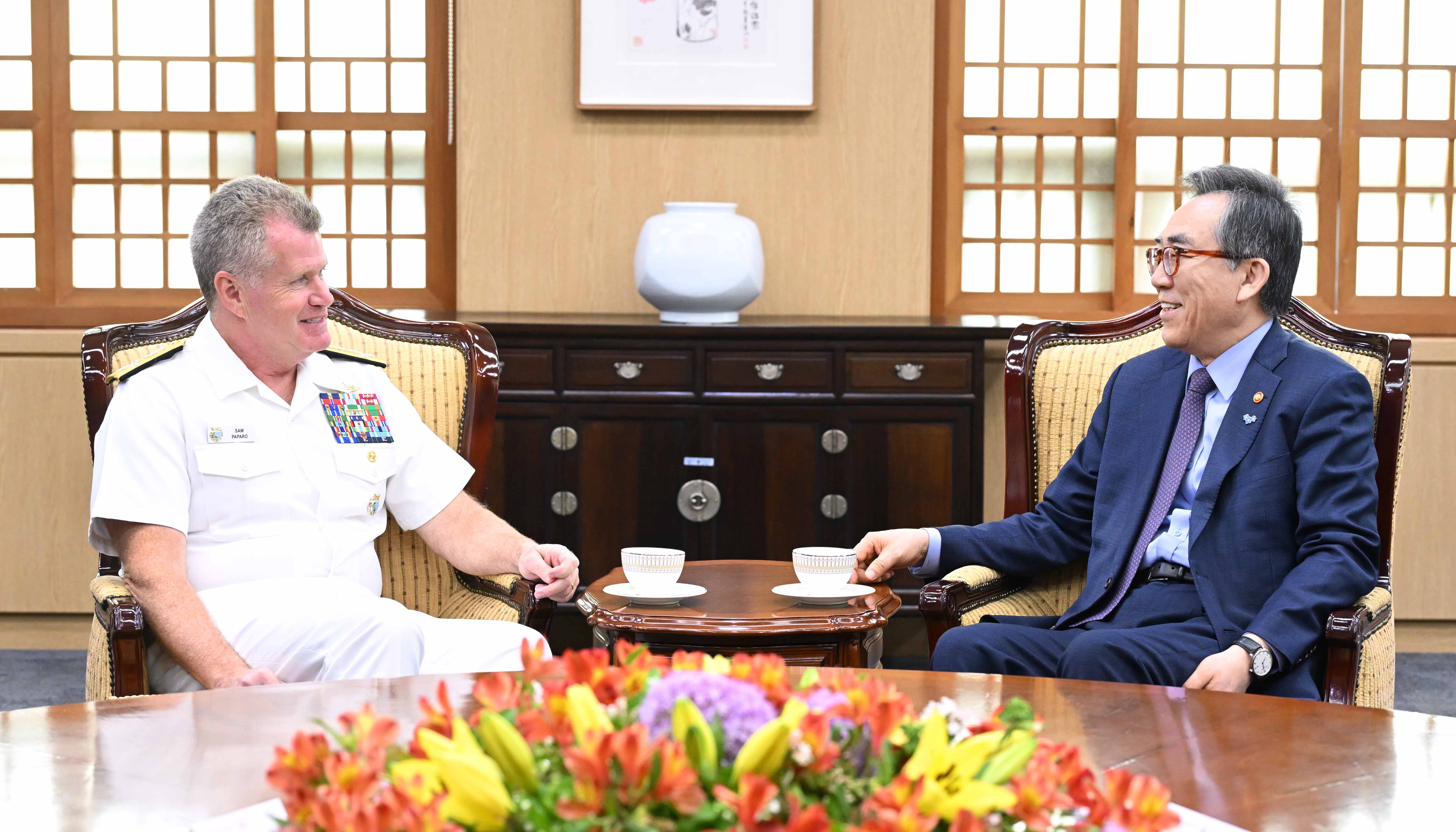-
About the Ministry
About the Ministry
- Press
- Countries & Regions
- Policy Information
- Life In Korea
Ministry News
- Notices
- Ministry News
- Press Releases
- Press Briefings
- Speeches & Published Materials
- Newsletter Service
- Diplomatic White Paper
Minister of Foreign Affairs Meets with Commander of U.S. Indo-Pacific Command
- Date
- 2024-06-05
- hit
- 4033

On May 30, Minister of Foreign Affairs Cho Tae-yul met with Admiral Samuel Paparo, the 27th Commander of U.S. Indo-Pacific Command (INDOPACOM), who assumed duties as Commander earlier this month. The Minister and the Commander exchanged views on the situation on the Korean Peninsula and the Indo-Pacific region and ways to strengthen the ROK-U.S. Alliance.
Minister Cho offered congratulations to Admiral Paparo on his inauguration, and appreciated the role of INDOPACOM in securing peace and stability on the Korean Peninsula and in the region. Minister Cho asked for the Admiral’s continued contribution to the security of the region based on close cooperation with U.S. allies and partner countries, including the ROK, under his leadership.
Admiral Paparo highlighted that the ROK-U.S. Alliance and ROK-U.S.-Japan trilateral security cooperation have been further strengthened since the inauguration of the Yoon Suk Yeol administration, appreciated the ROK’s proactive leadership and contributions in the Indo-Pacific region as a Global Pivotal State, and looked forward to the ROK continuing to play a significant role based on ROK-U.S. cooperation.
Minister Cho and Admiral Paparo shared their concerns and assessments on North Korea’s intentional escalatory behaviors, including the launch of a so-called ‘military reconnaissance satellite’ (May 27), sending balloons containing fecal matter and other waste (May 29), and the launch of suspected short-range ballistic missiles (May 30). Both sides decided to closely monitor every possible provocation by North Korea and ensure watertight responses.
Minister Cho and Admiral Paparo concurred that maintaining robust ROK-U.S. Alliance is of utmost importance to address the unprecedentedly heightened North Korean nuclear and missile threats. In addition to efforts to strengthen extended deterrence based on the ‘Washington Declaration,’ both sides agreed to continue to strengthen the ROK-U.S. combined defense posture which has been developed over the past 70 years. The two sides also agreed to continue close communication and cooperation between ROK and U.S. foreign affairs, defense, and military authorities.




